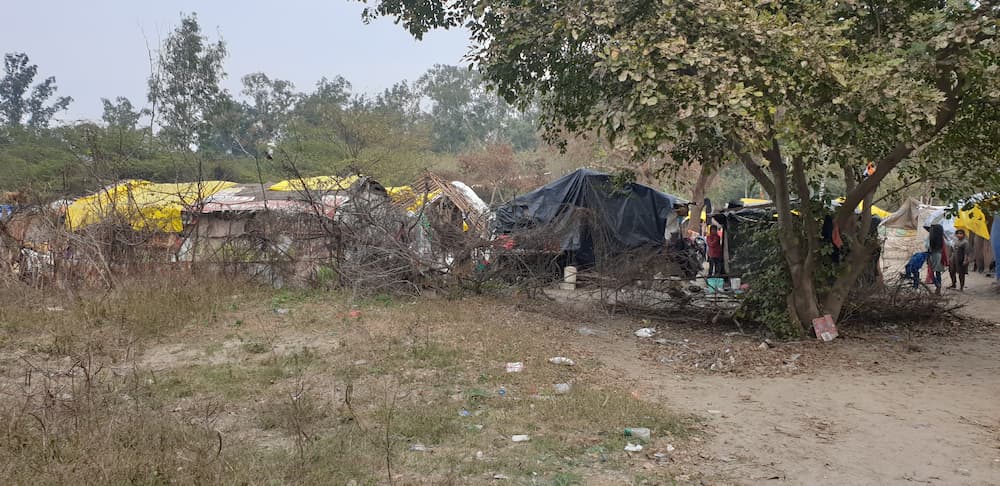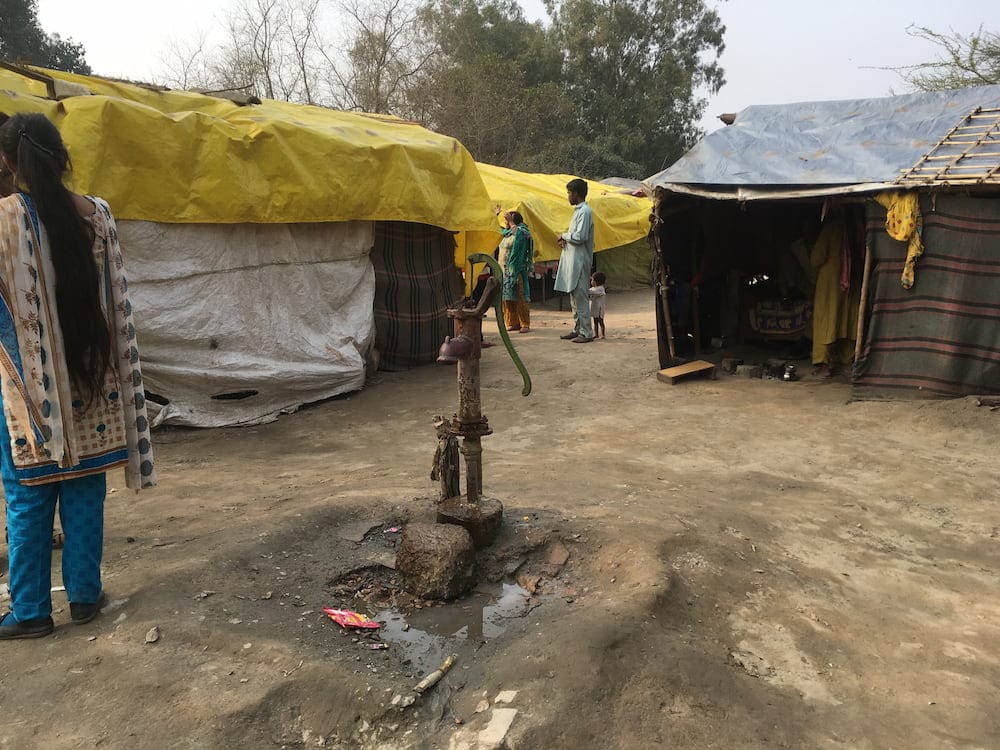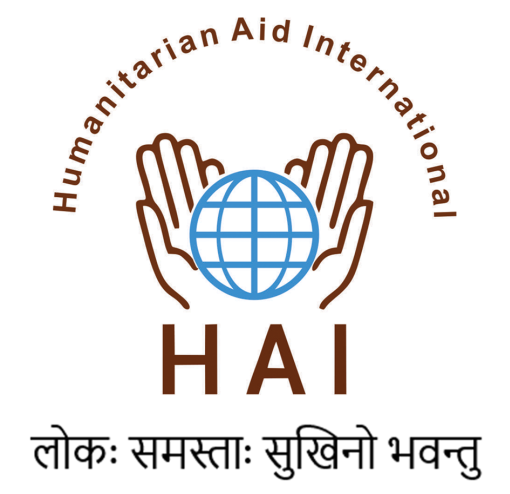Seventy-five Pak-Hindu refugee families reside in the new Signature Bridge refugee camp. They are living in the deplorable condition on the banks of Yamuna, lacking almost all basic amenities, including water, toilets and electricity. This camp is located in a forest, which makes them unsafe even during the daytime.
Since there are no toilets, everyone is compelled to go to the forest to relieve themselves. Women and children especially are exposed to personal safety risks and open defecation takes a toll on their health and the environment.

We have three main objectives to improve the situation for the refugee families:
- To install at least three water filtration units to ensure access to safe water for drinking and other purposes
- Construction of self-sustaining, eco-friendly nine ECOSAN toilets in the camp to ensure basic human dignity and reduce open-defecation and related health and hygiene risks
- To ensure dignified access to sufficient and safe WASH services
Your donation will help these refugee families live with dignity.
Lack of toilets put women folks at risk

Sonia ji shares “it’s very difficult and uncomfortable for the women and young girls of the camp to go to the forest area for open defecation. It is very scary since animals like snakes and insects are very common at the place where we live. Moreover, lack of privacy is another major concern. We would be relieved if separate toilets and bathing structures for the women in the camp can be constructed.”
Naina is a 14-year-old girl who shares that her experience of using a toilet, is not always easy.
“It is tough to look for safe spaces to relive ourselves. Sometimes men or young boys of the camp hamper our privacy. The most difficult times are during our menses. Lack of clean of water and safe spaces makes life difficult. We are in desperate needs of separate toilets and bathrooms for men and women.”
Lack of clean drinking water is causing health issues

Another major problem is the access to drinking water. There are only three functional hand pumps in the camp and this water is contaminated. Camp residents are compelled to use water from the hand pumps due to the lack of other options. Due to using the contaminated water, health and skin conditions are rampant especially among women and children. Skin diseases including scabies and kidney stones have become common health issues due to the poor quality of water.
Reshma shares that “There are a lot of problems for water and toilets. The water turns yellow but we still drink it like poison, we are helpless. We ourselves have to drink the yellow water and feed it to our children as well. Whatever help you want to give, just help us to get clean drinking water and proper toilets.”
Nirma’s husband had recently undergone an operation for kidney stones and fears that his health issues will become worse due to the poor water quality.
She shares that “The handpump water we drink is very dirty but we have to drink it out of helplessness. In five minutes, the water turns very yellow. My husband has had an operation for kidney stones but we only have this water to give him. I am scared that this could cause more kidney stone problems. There is no toilet here also. We have to go to the jungle instead. Three-four of us women gather and go together to relive ourselves. We get scared but what can we do? There are men, strangers around and it is a jungle area. We are helpless.”
HAI needs your support to help refugees access clean drinking water and hygienic sewage systems

Access to clean drinking water and a hygienic sewage system are human rights and basic human needs. The lack of functioning toilets and inadequate hygiene pose a major health risk especially for an already vulnerable population.
In order to address these problems, HAI is constructing nine, self-sustaining Ecosan toilets and installing three water filters to ensure basic human dignity and reduce health risks. Water filters will reduce the risk of water-borne diseases and allow for adequate clean water for consumption, cooking and hygiene requirements.
Objectives:
- To install at least three water filtration units to ensure access to safe water for drinking and other purposes
- Construction of self-sustaining, eco-friendly nine ECOSAN toilets in the camp to ensure basic human dignity and reduce open-defecation and related health and hygiene risks
- To ensure dignified access to sufficient and safe WASH services
For more details on the WASH situation in the Signature Bridge refugee camps, please see HAI’s WASH Factsheet 2021 here.
